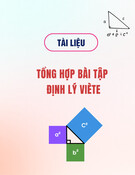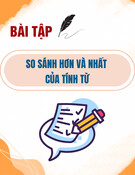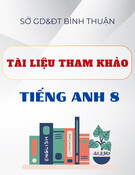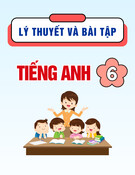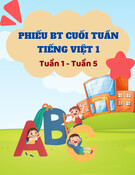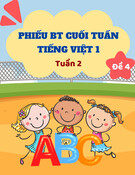
UBND QUẬN LONG BIÊN ĐỀ CƯƠNG ÔN TẬP GIỮA KỲ II
TRƯỜNG THCS VIỆT HƯNG MÔN: TIẾNG ANH 7
NĂM HỌC: 2024 - 2025
I. Grammar
1. It indicating distance
It’s (about) ……. from ….. to …… .
It is about 500 meters from my house to my school.
2. Should/ Shouldn’t => to give advice / to say what is the correct or best thing to do.
S + should/ shouldn’t + V
You shouldn’t go out late at night.
We should go now, or we might get stuck in a traffic jam.
3. Connectors: although / though and however
- We use “Although/ Though” before a clause to connect two contrasting ideas in the same sentence.
Although Peter is an amateur actor, he gave a great performance in his latest film.
Though Peter is an amateur actor, he gave a great performance in his latest film.
- We use “However” to contrast ideas in two sentences. We normally use a comma after it.
Peter is an amateur actor. However, he gave a great performance in his latest film.
4. Yes/ No questions
- These questions need either a YES or NO answer.
- We form a YES/ NO question with an auxiliary verb (be, do, have) or with a modal verb. We put the
auxiliary verb or modal verb before the subject.
Are you eating moon cakes? Yes, I am. / No, I’m not.
Did they eat moon cakes at the festival last year? Yes, they did. / No, they didn’t.
Can he eat all these moon cakes? Yes, he can. / No, he can’t.
- We don’t use an auxiliary verb when we use “be” as a main verb.
Is that your Christmas present? Yes, it is. / No, it isn’t.
5. Present continuous
a. Cấu trúc thì hiện tại tiếp diễn (present continuous)
- Khẳng định: S + am/is/ are + V-ing.
- Phủ định: S + am/is/ are + not + V-ing.
- Nghi vấn: (wh - word) + Am/ Is/ Are + S + V-ing?
Trong đó:
I am
He/ she/ it/ chủ ngữ số ít + is
We/ you/ they/ chủ ngữ số nhiều + are
b. Cách sử dụng:
Chúng ta sử dụng thì hiện tại đơn để thể hiện:
- một hành động đang xảy ra bây giờ hoặc tại thời điểm nói.
Ví dụ: The students are doing a project in the classroom now.
(Các em học sinh bây giờ đang làm dự án trong lớp học.)
- một hành động quanh thời điểm hiện tại hoặc không nhất thiết tại thời điểm quá.
Ví dụ: Scientists are looking for a new energy source to replace coal.
(Các nhà khoa học đang tìm một nguồn năng lượng mới để thay thế than đá.)
c. Dấu hiệu nhận biết:
Chúng ta có thể sử dụng các từ/ cụm từ:
1





